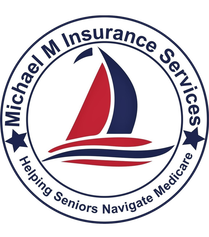You May Be able to keep your Employer Coverage if certain conditions are met. But you may want to compare your current coverage Kantime Medicare
Employer Coverage and Kantime Medicare
Your Kantime Medicare Employer Has More Than 20 Employees-
If you have health insurance through your current Kantime Medicare employer or your spouse’s employer, you may be able to keep that coverage when you become eligible for Medical. In fact, if your employer has 20 or more employees, they are required by law to offer you the same health insurance coverage they provide to younger employees; therefore, you may delay signing up for all or part of Medicare. Many who qualify for Free Part A will often sign up for Part A only and Sign up for Part B when they retire.
When you have both Medicare and employer coverage, one of them will be your primary insurer, and the other will be secondary. The primary insurer pays first, and the secondary insurer may cover some of the remaining costs. If your employer has 20 or more employees, your employer plan is typically primary, and Medicare is secondary.
Your Employer Has Less Than 20 Employees
However, if your employer has fewer than 20 employees, Medicare is usually the primary plan, and your employer plan is secondary. Signing up for Medicare is mandatory to avoid Penalties.
Evaluating Your Options
When deciding whether to keep your employer coverage or switch to Medicare, there are several factors to consider:
Cost: Compare the premiums, deductibles, and out-of-pocket costs for both your employer plan and Medicare. Don’t forget to factor in the cost of Medicare Part B premiums, which are based on your income.
Coverage: Review the benefits and coverage provided by your employer plan and Medicare. Consider your current and future healthcare needs, including prescription drugs, and ensure that your chosen plan adequately covers them.
Provider Network: Check if your preferred healthcare providers and facilities are included in your employer plan’s network and Medicare’s network. If you have established relationships with certain providers, you may want to choose the plan that allows you to continue seeing them.
Prescription Medications—As a rule, Drug Coverage with large companies is more affordable for expensive Medications, but it does pay to compare and know your options.
Conclusion-
Ultimately, the decision to keep your employer coverage or switch to Medicare depends on your individual circumstances and healthcare needs. It’s essential to review your options and consider the factors mentioned above carefully. If you’re unsure about which path to take, consult with your employer’s benefits administrator, a Medicare specialist, or a financial advisor who can help you make an informed choice.
Remember, if you decide to keep your employer coverage and delay enrolling in Medicare Part B, you’ll need to enroll during the Special Enrollment Period (SEP) when you retire, or your employer coverage ends to avoid penalties. This SEP lasts for eight months after your employment or coverage ends, whichever comes first.
Summary-
While you can keep your employer health plan when you become eligible for Medicare, it’s crucial to weigh your options carefully. By understanding how Medicare and employer coverage work together and evaluating your healthcare needs and preferences, you can make a decision that ensures you have the right coverage for your unique situation.
Frequently Asked Questions
Are Medications Less Expensive With Medicare?
Not Necessarily. Company Plans usually have lower copays for expensive Medications.
My Employer takes money out of my paycheck every month for my Health Insurance. Is there a Monthly Charge for Medicare?
Yes, the Base Premium for Medicare Part B in 2024 is $174.70 per month.
Mike Miligi- Owner- Michael M Insurance Services
For over 10 years, Mike has been assisting Seniors and other Medicare-eligible individuals in understanding the ins and outs of Medicare and Medicare Health Insurance options, including Medicare Advantage Plans(Part C), Medicare Supplement Plans(Medigap), Prescription Drug Plans(PartD), and Dental and Vision programs.
Mike is Licensed in seven States and Certified with 11 Insurance Carriers. He has helped thousands of individuals decide on the best course of action for their particular Health Insurance needs. Because Mike is an Independent Medicare Health Insurance Broker, he works for the client, not the Insurance Carriers, and is able to provide his clients with accurate and unbiased Health Insurance options.


